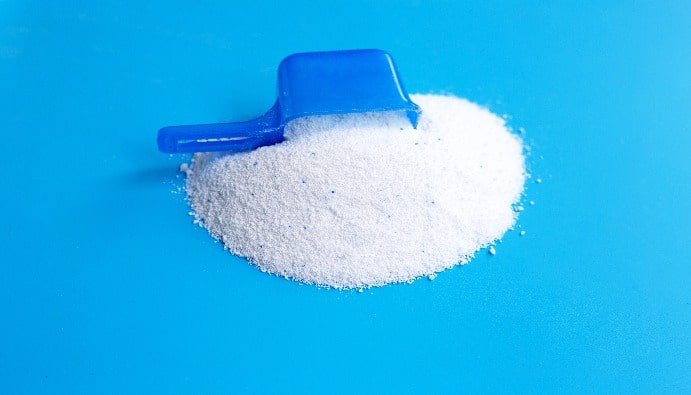
BLOG
KATEGORİDEKİ DİĞER YAZILAR

Zeolites are minerals known as hydrous alumino silicates. Natural zeolites are a group of more than 40 minerals. Commonly known are faujasite, stilbite, shabazite, ferrierite, analsim...
Apart from natural zeolites, synthetic zeolites, which are more efficient and cost-effective, are used in the detergent and chemical industry today. Artificial zeolites are not equivalent to natural zeolites. There are approximately 200 types.
Zeolites, which are not currently produced in Turkey, are used in many sectors such as organic agriculture, detergent industry, livestock breeding and cleaning of industrial wastes.
Zeolite, which has been used in detergents since 1976, is called Zeolite A, Zeolite NaA or Zeolite 4A. Zeolites are generally used as a substitute for phosphates in the detergent industry.
Zeolites act as ion exchange in detergents by replacing water hardness ions with sodium ions. The environmental damage caused by detergents has long been known and discussed. Considering their harm to the environment
When it is taken into consideration, solutions are sought for detergents. Synthetic zeolites have started to be used in the detergent sector due to their functionality and ecological properties.
In various studies, it has been determined that zeolites do not harm aquatic organisms like other chemicals and do not have negative effects on the development of algae. Therefore, the use of zeolite instead of phosphate has reduced the risk to aquatic organisms such as phytoplankton, zooplankton or fish when detergents are mixed with water.
While phosphate-based detergents cause sediment formation in sewage systems over time, no sediment formation is observed in the use of zeolite. Studies on living organisms have shown no toxic effect or irritation potential.
Considering the benefits of zeolites, it is more advantageous and environmentally beneficial to use instead of phosphate.
Zeolite determination is usually done using chemical analysis methods. This test helps to determine the amount of zeolite contained in the detergent. Commonly used test methods are as follows:
Nanolab Laboratories Group continues to provide services within the scope of Zeolite Determination in Detergent. We also provide services in Heavy Metal Testing.
Contact us for more information.
You can follow us on LinkedIn for up-to-date news and posts about our services.
Follow our Instagram account to be informed about our latest blog posts.